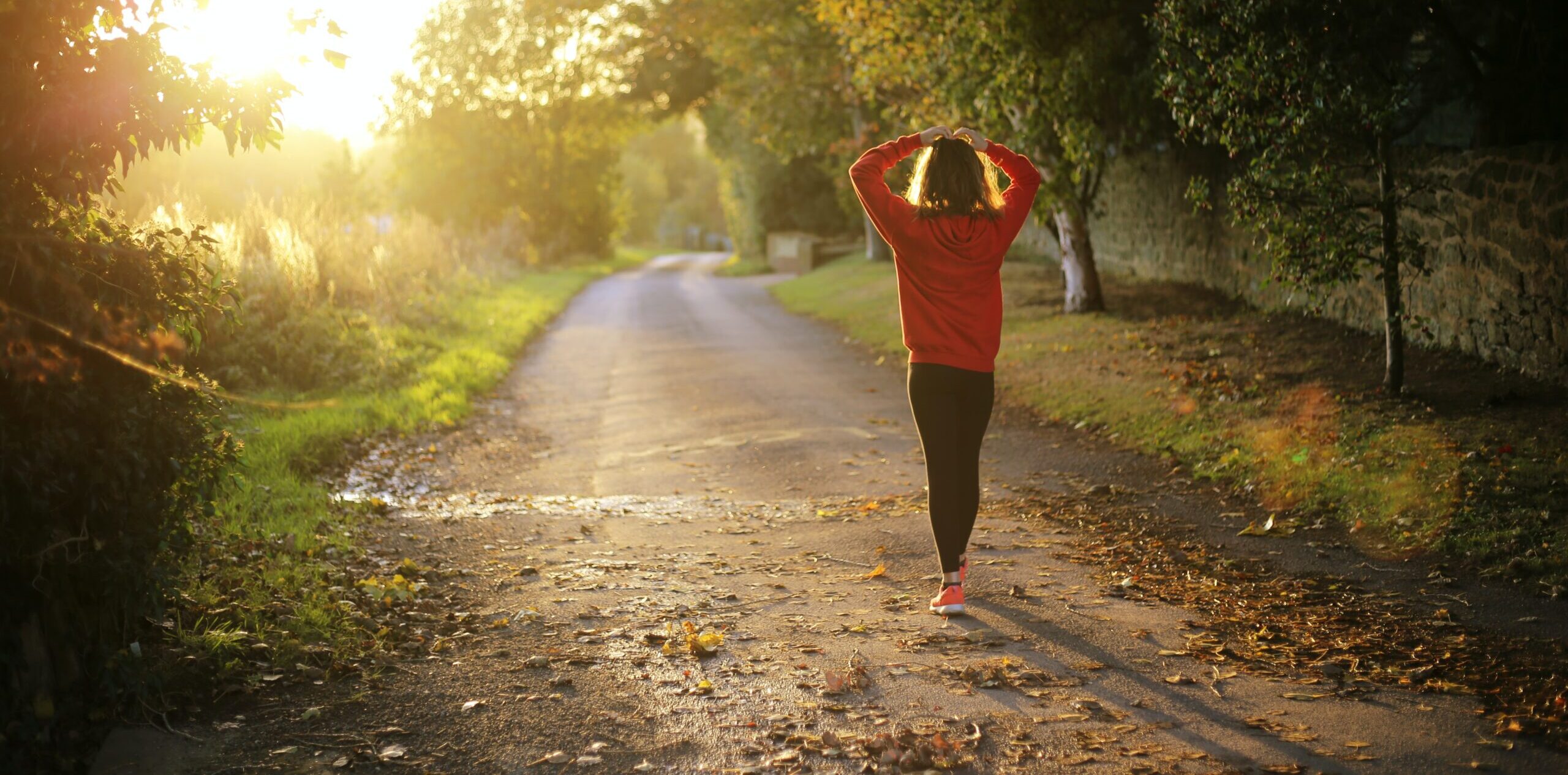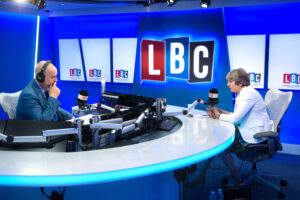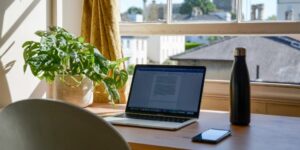
Image: Unsplash
Simone Fraser chats to health journalists about how they look after their wellbeing while they work from home.
Gone are the days of office parties and Friday evening pub outings to let off steam and unwind. Although a return to some semblance of normality is hopefully coming for some, other people find themselves working from home for the foreseeable future. For journalists working through the pandemic and the changes it sparked, it can seem impossible to balance a career and still take care of their mental and physical health.
But what about the people who write about these topics for a living? We spoke to some leading health journalists to find out how they stay happy and well when working from home – and what they’ll do going forward.
Claudia Canavan is digital health and beauty editor at Women’s Health UK. For her, the biggest change has been conducting interviews, meetings, and press events remotely, something that would have been rare pre-COVID.
“This has definitely made my job less fun – I love going out to meet people for interviews and batting ideas around in person with the team – but it has meant that I’ve had more time to work on longer, more thoughtful features, which has been really satisfying.”
As an editor of Women’s Health, Canavan is predictably good at taking care of her physical wellbeing through a combination of regular kettlebell exercises, high intensity workouts, and good nutrition.
“One thing that’s made me healthier right now is the lack of midweek boozing that would happen at post-work drinks and events, pre-pandemic.”
Canavan, who describes herself as “extremely extroverted”, finds the best way to stay happy is to keep in contact with friends and family.
“The best thing I can do for my mental health right now is to stay really connected to the people I love. I live with my boyfriend, so that’s easy, but I’m hot on ringing my best friends every week, booking in weekend walks with those that live in the same area as me, and arranging the occasional Zoom catch up, which I’m aware is now very retro.”
“Nutrition-wise, it’s just trying to eat well and resist the ever-present temptation to raid the fridge or food cupboard when you have a hunger pang”
Whilst spending time with loved ones is usually a positive, for Andy Dixon, editor-in-chief of Runner’s World UK, one of the most stressful parts of the past year has been balancing work and home-schooling his children.
“If you allow it you can spend all your time being ‘on call’ for work, especially with Slack and email on my mobile phone. So, I make an effort to retain some boundaries between my work and home life – once I’ve switched into home mode, I resist the temptation to reply to messages and emails instantly, and instead leave that for when I’m back at my desk.”
To deal with the stresses of working from home, Dixon turns to – you guessed it – running. He adds: “Nutrition-wise, it’s just trying to eat well and resist the ever-present temptation to raid the fridge or food cupboard when you have a hunger pang.”

Rachel Charlton-Dailey is a freelance journalist focusing on disability and health and editor-in-chief of The Unwritten, a new p
ublication for disabled people. The widespread shift to working from home has had some benefits to her career.
She explains: “I’ve actually found my work increased a lot because everything is from home now, whereas before, as a disabled person, I was discounted for wanting to work from home.
“At the beginning, it was very hard to land anything, but I focused on how COVID was affecting the disabled community. I wrote a lot of really hard-hitting things, they were upsetting at times.”
However, for Charlton-Dailey, who has the autoimmune system disorder lupus, maintaining physical and mental health has added challenges.
“I try my best to stay away from people, as I’m susce
ptible to illnesses anyway – but the pandemic has been on another level of risk and isolation. I try not to push myself too hard and work from bed when I’m in pain or the fatigue is bad.”
She credits her support system for helping her to stay mentally well throughout the pandemic – including the furry variety.
“Getting out with my dog has really helped my mental health – he’s saved me during this pandemic. I think a lot of us have dogs to thank.”
“This year, I’ve made a conscious effort to ease up a bit – take longer lunch breaks, relax properly over the weekends, say no to additional projects I don’t really have time to take on”
Scarlett Wrench, features editor at Men’s Health also partially credits her wellbeing to a canine companion.
“My husband and I have a pug, so meeting friends for weekend walks has been nice. South London has so many beautiful green spaces.”
The past year has seen regular, rapid changes to health news, and Men’s Health has adapted accordingly.
“The pandemic has challenged me to be more reactive. When scheduling for a monthly magazine, usually you’re working far ahead of the on-sale date, but with the cultural landscape and COVID guidelines changing so rapidly in 2020, we had to react quickly to current events and deliver big projects to tight deadlines.”
Yet, as journalists across the country know all too well, spending your working day seated in one position has significant downsides. When it comes to maintaining her health, Wrench has a two-pronged approach. “Regular exercise has really saved me these past 12 months. I signed up to a CrossFit gym last year, which has a fairly intense exercise and lifestyle program. There’s a lovely, fun community of local people and we have a WhatsApp group where we all cheer each other on.
“I’ve also got comfortable with being less productive. During the first lockdown, I put pressure on myself to work very long hours. This year, I’ve made a conscious effort to ease up a bit – take longer lunch breaks, relax properly over the weekends, say no to additional projects I don’t really have time to take on.”
Perhaps the most reassuring thing to hear is that even expert health journalists aren’t perfect when it comes to fitness and wellbeing. Canavan admits that “I feel like a bit of a fraud typing this right now, as I’m chaining coffee after staying up late and waking up early to meet a deadline”. And Wrench confesses that “I’m writing this at 8.30pm while watching TV”. So despite their expert knowledge, it seems like health and fitness journalists aren’t so different to the rest of us after all.

















